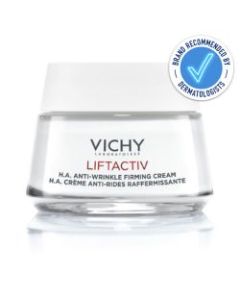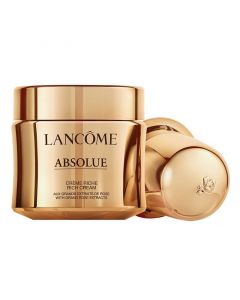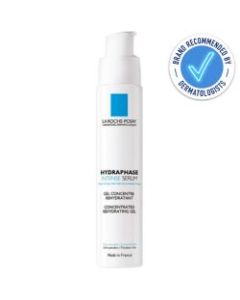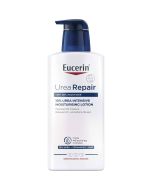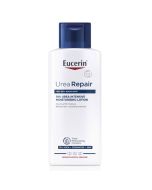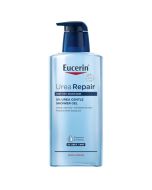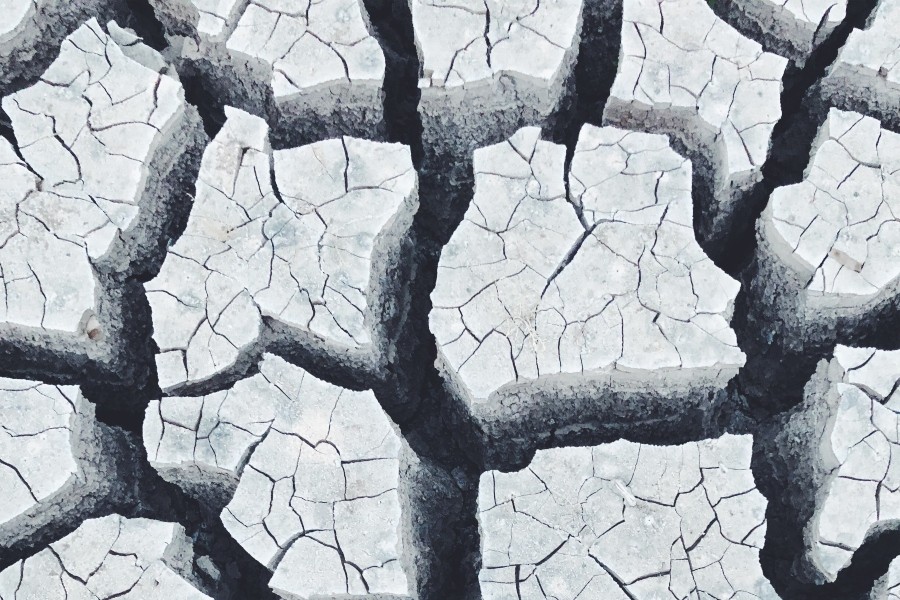
Dry Vs Dehydrated Skin: How To Tell The Difference
By Girish Desai, Pharmacist (GPhC ), Nutritionist and Homeopath
You might think that dry skin and dehydrated skin are synonymous issues, however this isn't true. Each has its own causes and dermatological solutions that you need to understand in order to make the right skincare choices.
Here we look at the underlying causes of dry and dehydrated skin, how to identify each, and what skincare and lifestyle choices you can make to avoid them.
What Is The Difference Between Dry And Dehydrated Skin?
The main difference between dry skin and dehydrated skin is that dry skin is a skin type, where you skin lacks natural oils, and dehydrated skin is a skin condition. Dehydrated skin is an issue that affects all skin types, be they oily, dry or sensitive, and is due to a lack of water in the skin. It's imporant to understand this difference so you can choose the right type of moisturiser, cream or oil to help you.
Dry Skin
Dry skin is a natural type of skin that someone might have, such as they might have sensitive skin or oily skin.
What Causes Dry Skin?
Dry skin is caused by a lack of oil, also known as lipids – lipids are the skin's natural fats which are used in the skin barrier to hold moisture in and keep dirt or impurities out.
Characteristics Of Dry Skin
There are a few common characteristics of dry skin, namely:
- skin feels rough
- skin looks dry
- skin might be flaky in places
- skin feels itchy
How To Deal With Dry Skin
The most common and simple solution for dealing with dry skin is to use a moisturiser to rehydrate your skin. It's important to use a moisturiser that is formulated for dealing with dry skin and suited to your skin's needs, such as if you have sensitive skin or allergies and need a hypoallergenic moisturiser.
You will also need to use a different moisturiser for your body and your face. This is because body moisturisers tend to be heavier than facial moisturisers, so if used on the face can cause clogged pores. Similarly facial moisturisers can be too light and won't effectively deal with dry (or dehydrated) skin on the body.
We have a collection of moisturisers for dry skin. A couple we'd recommend are:
Dehydrated Skin
All skin types can experience dehydrated skin. This is important to remember as you can have naturally oily skin but also have dehydrated skin.
What Causes Dehydrated Skin?
Dehydrated skin is caused when there is a lack of water in the top layer of your skin, known as the stratum corneum. Dehydrated skin is often caused by overexposure to UV rays, such as those found in sunlight. If you are getting a lot of sun or live somewhere that is hot and sunny with strong UV, then you'll be more likely to experience dehydrated skin.
Characteristics Of Dehydrated Skin
There are a few features of dehydrated skin that you can watch out for (and which distinguish it from dry skin):
- Skin appears duller in colour
- Skin feels tight and/or rough
- Skin is more sensitive than usual
- Skin has fine lines
- Skin shows accelerated signs of aging, such as sagging skin or deep wrinkles
How To Deal With Dehydrated Skin?
Water is vital to life and many of us aren't drinking enough of it. The number one way to deal with dehydrated skin is to drink plenty of water, every day. You should be aiming for around 1.2 to 1.5 litres per day, as an adult.
To directly deal with dehydrated skin from the outside, you can use a high-quality serum. If you are experiencing dehydrated skin on your face then it is recommended that you choose one that contains hyaluronic acid – a natural substance that helps keep water within your skin.
We would recommend:
Factors That Cause Dry & Dehydrated Skin
While dehydrated skin and dry skin are two seperate skin conditions, you should also be aware that some factors can cause both to occur.
Hard Water & Hot Water
Hard water is water with elevated amounts of calcium in it, such as London water which comes through chalk and limestone. While hard water doesn't impact drinkability, it can cause both dry and dehydrated skin. Washing with hard water will dry out the skin, and over time lead to dehydration.
And it isn't just hard water you have to consider. Even in areas with soft water, taking frequent hot showers and baths can also dry out the skin, causing dry or dehydrated skin. Ideally you should be looking at washing with soft water and in warm, rather than hot, water.
Aging
Over time, your skin will find it increasingly difficult to retain the natural level of moisture needed to stay soft and supple. Aging makes the body more dehydrated, which makes skin dry and more susceptible to dehydration.
Air-Conditioning & Central Heating
Cool air inside in summer and cosy heating in winter are both normal ways to keep our bodies comfortable during the changing of the seasons. But both of these systems change the moisture levels in rooms and dries the air around our bodies. This can contribute to dry and dehydrated skin, particularly if you aren't staying hydrated by drinking enough water.
By keeping in mind all of the above factors, and knowing your own skin type, you can make the adjustments needed to keep your skin healthy and hydrated.
Disclaimer
The products offered are not intended to diagnose, treat, cure, or prevent any illness or disease, or to replace the advice of a medical professional. Results are not guaranteed and may vary from individual to individual.

